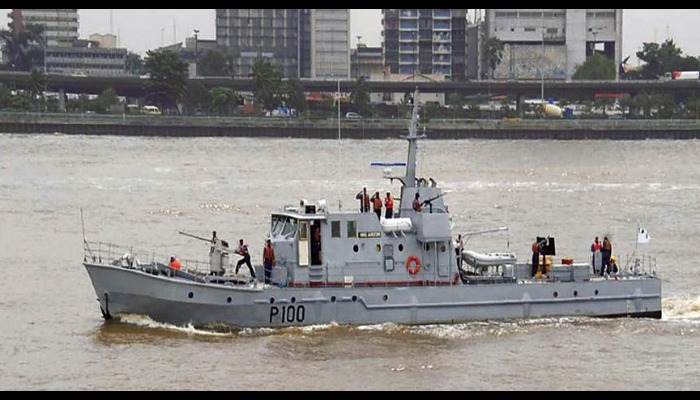Marine Defense Systems in Nigeria – Securing Coastal Waters and Strategic Assets
Nigeria’s maritime environment is one of the most dynamic and high-risk in Africa, encompassing the Gulf of Guinea—a global hotspot for piracy, smuggling, illegal fishing, and oil theft. To counter these threats and protect offshore economic zones, the country continues to invest in marine defense systems designed to safeguard national waters, secure trade routes, and support military readiness.
This article explores the components and development of marine defense systems in Nigeria, their strategic importance, and how Wigmore Trading supports this sector through procurement, logistics, and supply chain solutions for defense and maritime partners.
What Are Marine Defense Systems?
Marine defense systems refer to the combination of platforms, technologies, infrastructure, and personnel used to protect a country’s maritime domain. In the Nigerian context, these systems are deployed by the Nigerian Navy, Nigerian Maritime Administration and Safety Agency (NIMASA), and other security forces to address both conventional and asymmetric threats.
Key components include:
-
Naval vessels and patrol boats
-
Coastal surveillance radar and satellite systems
-
Electronic warfare and communications platforms
-
Marine command and control centers (C2)
-
Unmanned aerial and surface systems (UAS/USVs)
-
Naval infrastructure, including forward operating bases (FOBs), dry docks, and fueling stations
Together, these systems form a layered defense strategy spanning offshore platforms, coastal areas, and inland waterways.
Why Marine Defense Systems Matter in Nigeria
Nigeria’s coastline stretches over 850 km and its Exclusive Economic Zone (EEZ) spans thousands of square kilometers, including offshore oil fields and shipping corridors vital to the national economy. Marine defense systems are necessary to:
-
Combat piracy and armed robbery at sea
-
Protect oil and gas infrastructure
-
Secure ports and shipping lanes
-
Support multinational maritime security initiatives (e.g., Deep Blue Project)
-
Enable disaster response and humanitarian assistance missions
Effective defense systems enhance investor confidence, ensure energy security, and uphold Nigeria’s leadership role in regional maritime stability.
Key Marine Defense Initiatives in Nigeria
1. Deep Blue Project
Led by NIMASA and the Nigerian Navy, this integrated security initiative includes:
-
Special mission vessels and aircraft
-
Surveillance drones and land-based control centers
-
Joint task force operations for interdiction and response
-
Coastal monitoring and real-time data sharing
2. Fleet Expansion and Modernization
The Nigerian Navy has invested in modern platforms including:
-
Offshore Patrol Vessels (OPVs) like NNS KADA
-
Fast attack craft, interceptor boats, and hydrographic survey ships
-
Imported and locally built platforms with modern navigation, surveillance, and weapons systems
3. Maritime Domain Awareness (MDA) Systems
Ongoing upgrades to Nigeria’s coastal radar and tracking capabilities—integrating data from AIS, VTMS, and naval command centers—are critical to proactive threat detection.
How Wigmore Trading Supports Marine Defense Systems
While Wigmore Trading is not a defense contractor or weapons supplier, we play a key role in supporting marine defense infrastructure and logistics operations across Nigeria’s naval and maritime landscape.
1. Procurement of Marine-Grade Equipment
We source radar components, power systems, vessel consumables, safety equipment, and mission-critical electronics from certified global suppliers for use in defense support platforms.
2. Construction and Base Support Materials
Wigmore Trading supplies construction materials, generator systems, lighting, and communications infrastructure for forward operating bases and command centers.
3. Fuel and Provisioning for Naval Assets
We assist with the supply of marine diesel, lubricants, food, and medical supplies used for sustained naval patrols and joint exercises.
4. Rapid Logistics and Import Coordination
Our team ensures timely delivery of sensitive equipment through Nigerian ports—managing customs clearance, waivers, and special import requirements for defense-related items.
5. Partnership with Licensed Contractors
We support authorized defense and maritime contractors with supply chain services that align with project timelines, security protocols, and government procurement standards.
Wigmore Trading can help ensure your marine defense operations are backed by a reliable, responsive supply chain tailored to Nigeria’s strategic environment.
Conclusion
Marine defense systems are at the core of Nigeria’s national security strategy, providing the tools and infrastructure needed to maintain maritime control, protect economic assets, and contribute to regional peace. As the country continues to modernize and expand its capabilities, strong logistics and procurement partners are essential.
Wigmore Trading stands ready to support Nigeria’s marine defense initiatives with trusted sourcing, logistics coordination, and infrastructure supply tailored to complex operational demands.








Comments are closed.